Counting skills Normal Matching Worksheets for Ages 3-9
6 filtered results
-
From - To
Explore our engaging Counting Skills Normal Matching Worksheets designed specifically for children aged 3-9! These worksheets make learning to count fun and interactive, promoting essential early math skills. Each worksheet features vibrant, child-friendly illustrations and exciting matching activities that challenge kids to connect numbers with corresponding quantities. Ideal for home or classroom settings, these printables enhance cognitive development, improve fine motor skills, and reinforce number recognition. Perfect for early learners, our counting worksheets foster independence and boost confidence as children practice essential counting skills in a playful manner. Download our free worksheets today and watch your child's math skills flourish!
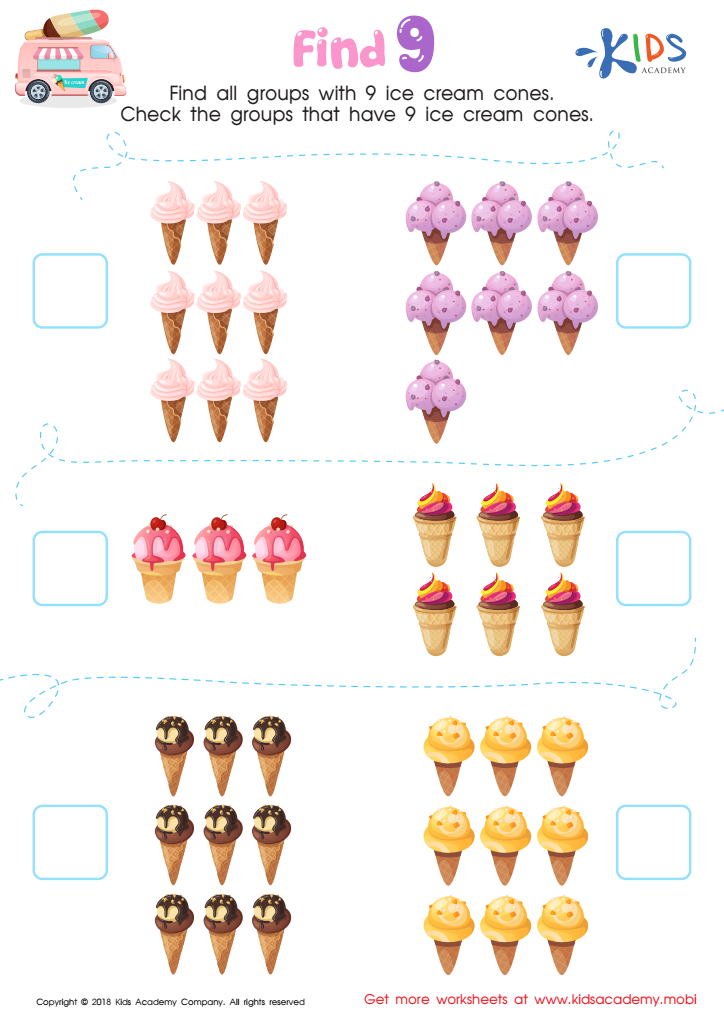

Find 9 Worksheet
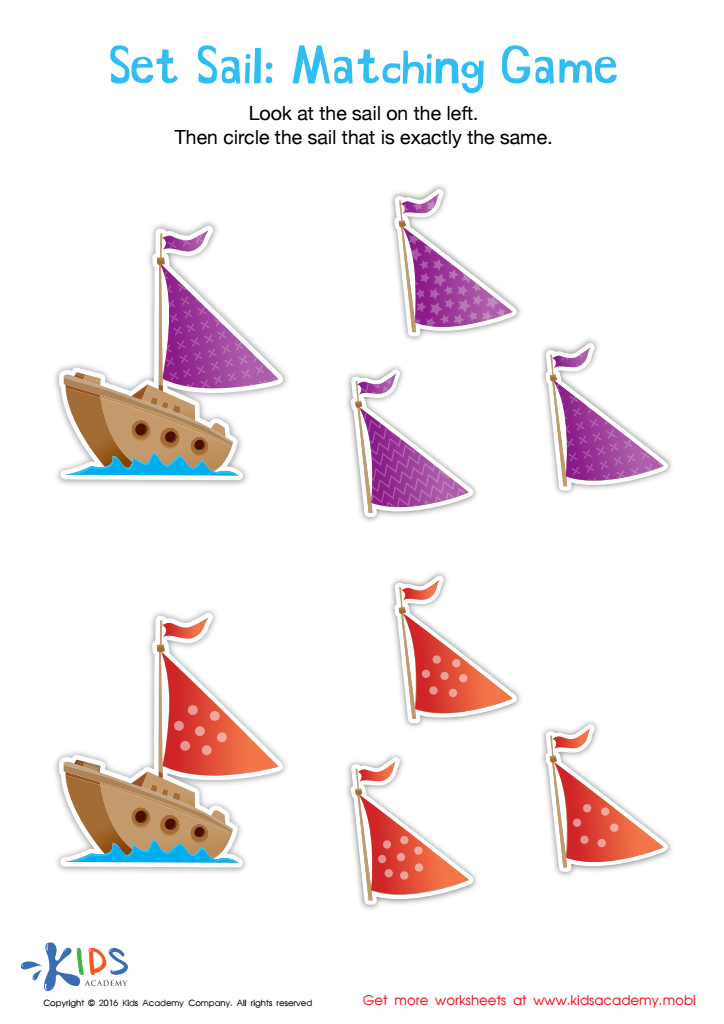

Set Sail Worksheet
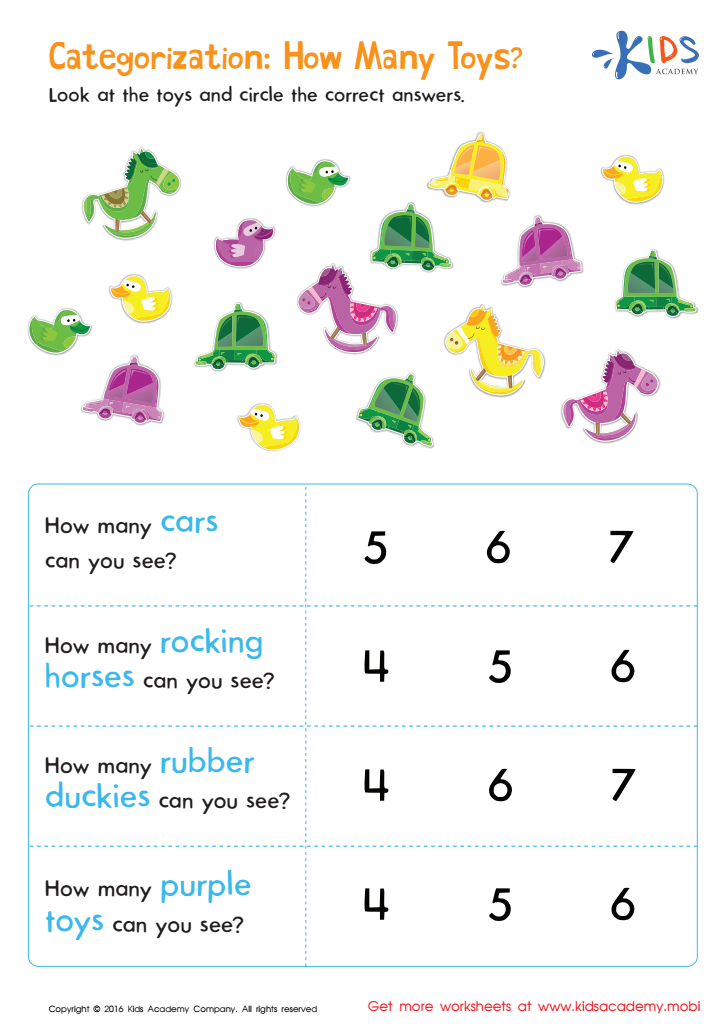

Classifying Toys by Type and Color Sorting Worksheet


Frog Countdown Worksheet
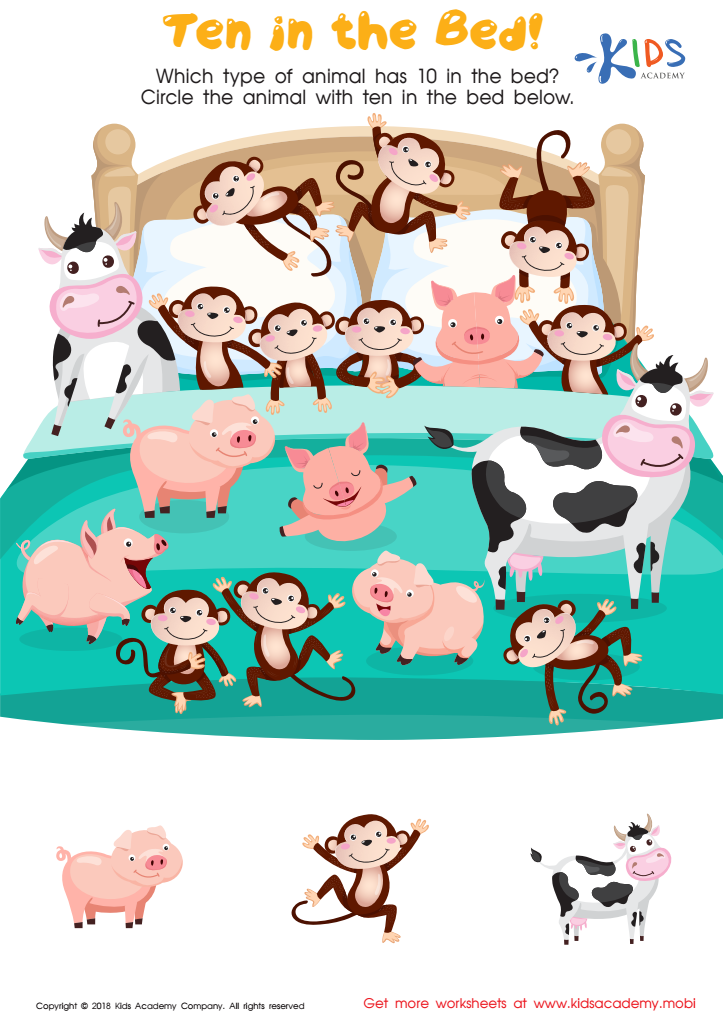

Ten in the Bed Worksheet
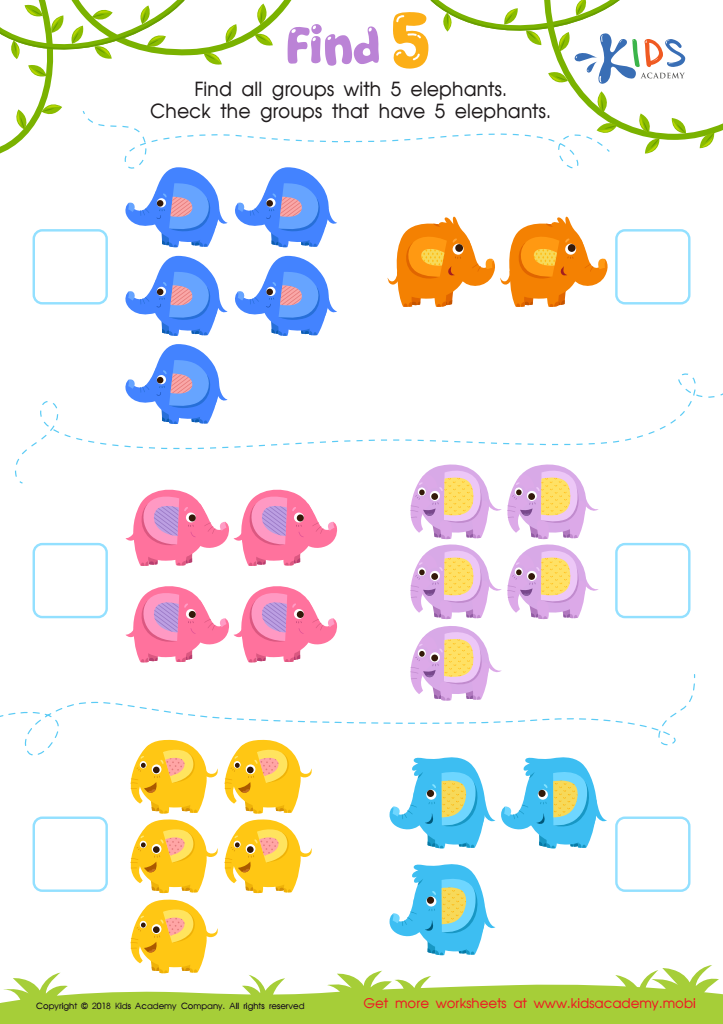

Find 5 Worksheet
Counting skills and normal matching are crucial developmental milestones for children aged 3-9. During this period, children are building foundational mathematical abilities that can greatly influence their overall academic success. Parents and teachers should care about these skills because they serve as the building blocks for more advanced concepts.
Counting skills help children understand quantities, develop number sense, and enhance their problem-solving abilities. When children learn to count reliably, they gain confidence in their mathematical abilities, which sets a positive tone for future learning. Normal matching, involving the ability to identify and pair similar items, fosters cognitive development and promotes logical reasoning.
Engaging in counting and matching activities encourages developmental milestones in several areas—including spatial awareness, fine motor skills, and language development. These activities can also serve as a wonderful opportunity for parents and teachers to bond with children while making learning enjoyable.
Moreover, strong counting and matching skills directly correlate with success in later elementary math concepts, influencing standardized test performance, and overall school readiness. By prioritizing these skills at an early age, parents and teachers not only enhance children’s academic lives but also prepare them for lifelong learning.
 Assign to My Students
Assign to My Students




















